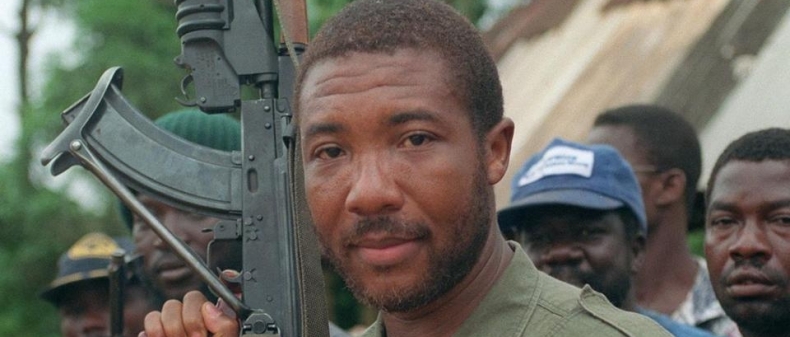
Charles Taylor
The International Criminal Court in The Hague has convicted former Liberian president Charles Taylor of aiding and abetting murder, rape, terrorism, sexual slavery, and a host of other crimes related to his role in supporting rebel forces during the civil war in Sierra Leone during the 1990s and early 2000s.
That conflict, popularized in the Leonardo DiCaprio film Blood Diamond, resulted in the deaths of hundreds of thousands of people and brought countless other atrocious practices- such as the use of amputation as a terror tactic and the proliferation of child soldiers- to international light.
Taylor helped to finance these brutalities by facilitating and supporting the illicit trade of conflict diamonds from Sierra Leone, which provided the radical Revolutionary United Front (RUF) with hundreds of millions of dollars of income, in a region where $1 million could buy 100,000 second-hand Kalashnikov rifles. Despite never being able to actually produce more than $10 million worth of diamonds per year from its own land, Liberia was able to export a rather conspicuous $2 billion of diamonds to Belgium alone from 1994-1999.
The court’s decision was certainly welcomed and cheered by many of Taylor’s victims. In Tombodu, Sierra Leone, farmer Samuel Komba, who was burned and maimed by the RUF during the war, said that, “the whole world will know today what Charles Taylor did, and we are happy.” In a region in which the scale of such atrocity can be so great but the international response so tepid, the verdict was an affirmation of a people’s unthinkable tragedy.
And yet, the court’s verdict should also serve as a somber reminder of how far we, as a global civil society, have to go before we can hope to avert such tragedy in the future. The fact is that this conviction came a full twenty years after the war in Sierra Leone began, and the trial itself took five years and cost an estimated $250 million to prosecute. If anything, the trial’s length and inefficiency unfortunately speak to the limits of international law as an instrument of true justice.
Perhaps most importantly, Taylor’s conviction should not be considered the end of the story. The fact is that there were many actors with blood on their hands in the illicit trade of conflict diamonds, both in Africa and internationally, many of who have been able to escape their own culpability.
The diamond industry itself comes immediately to mind. De Beers in particular for years turned a blind eye to the source of the diamonds that it bought, indirectly helping to finance rebel activity throughout the African continent. The company even directly circumvented international law in some cases, for instance buying most of the Angolan rebel group UNITA’s stockpile of diamonds despite explicit United Nations sanctions in 1998.
It was only after the term “conflict diamonds” took a place in the international lexicon that the diamond industry finally changed its ways, in the face of a public relations nightmare. In the case of the Sierra Leone conflict, it was actually a Canadian NGO called Partnership Africa Canada that led the way, publishing a 2000 report entitled The Heart of the Matter that highlighted the role of diamonds in the war and asserted that “De Beers is part of the problem.”
The diamond industry, after years of denying that there was any kind of problem, finally wised up and realized that the controversy wasn’t going away. It shrewdly reversed course and actually championed a governance regime to regulate the flow of conflict diamonds, which culminated in the Kimberley Process Certification Scheme, for which it has received much credit in recent years. The Kimberley Process was less about altruism, however, than it was about an industry realizing that it was actually in its own commercial self-interest to impose regulations.
If the conflict diamond saga demonstrates anything, it is in how much the nature of global diplomacy has changed in recent decades. International relations are no longer defined solely by states themselves. In the case of Africa, it also took an uncommon coalition of international institutions, NGOs, big business, and even socially conscious consumers to make significant progress. Let us hope that we heed this lesson in the future, and that it doesn’t take twenty years before the other Charles Taylors out there are brought to justice.
______
Matthew Frisch writes Foreign Desk for Toronto Standard. Follow him @mfrisch.
For more, follow us on Twitter at @TorontoStandard and subscribe to our newsletter.












